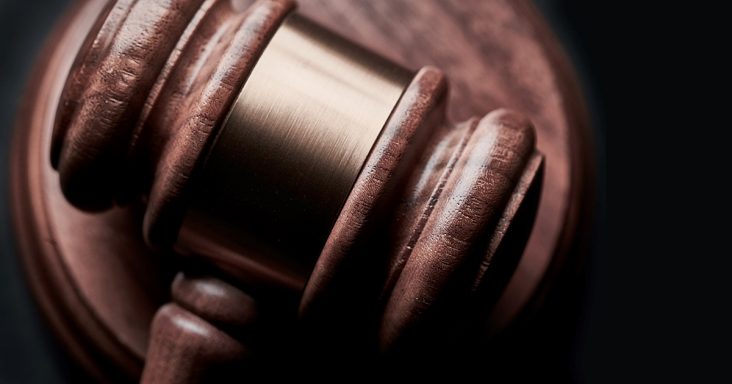Federal Appeals Court affirms ruling related to Arkansas’ legislative redistricting plan
by November 20, 2023 2:55 pm 1,247 views

The U.S. Court of Appeals for the Eighth Circuit has for now blocked an effort to challenge Arkansas’ legislative redistricting following the 2020 Census. The three-judge panel issued a 2-1 ruling affirming that only the federal government can challenge the state’s redistricting.
The American Civil Liberties Union (ACLU), on behalf of the Arkansas State Conference of the NAACP and the Arkansas Public Policy Panel, filed a lawsuit in 2021 under Section 2 of the U.S. Voting Rights Act (VRA) of 1965. Their lawsuit centered on a challenge to the redistricting plan that created 11 majority-Black House districts. The plaintiffs said the number was too low and would dilute minority representation in the Arkansas legislature.
Arkansas’ 100-member House and 35-member Senate districts were redrawn in 2021 by the state Board of Apportionment, which then consisted of Gov. Asa Hutchinson, Attorney General Leslie Rutledge and Secretary of State John Thurston – all Republicans.
In early February, U.S. District Judge Lee Rudofsky ruled in February that the lawsuit must be dismissed unless the U.S. Department of Justice intervenes in the case within the next five days. The DOJ did not intervene. The ACLU appealed that decision to the Eighth Circuit, saying that Section 2 allows individuals to sue for relief to protect their rights under the VRA.
“The court held that no one but the federal government can now sue for violations of the Voting Rights Act of 1965. No court has ever held that private individuals may not enforce their rights under the VRA. We will keep fighting alongside our clients to make sure that voting rights of Black Arkansans are protected,” Holly Dickson, Arkansas ACLU executive director, said after Rudofsky’s ruling.
However, Appeals Court Judges Raymond Gruender and David Stras affirmed Rudofsky’s decision in Monday’s (Nov. 20) opinion.
“Precedent provides a little more guidance, but like legislative history, no firm answer. The advocacy groups argue that courts have been adjudicating (section) 2 claims brought by private plaintiffs for years, so they must be available. But assuming their existence, and even discussing them, is different from actually deciding that a private right of action exists,” Stras noted in the opinion. (Link here for a PDF of the ruling.)
Appeals Court Judge Lavinski Smith dissented.
“Until the Court rules or Congress amends the statute, I would follow existing precedent that permits citizens to seek a judicial remedy,” Smith wrote. “Rights so foundational to self-government and citizenship should not depend solely on the discretion or availability of the government’s agents for protection. Resolution of whether (section) 2 affords private plaintiffs the ability to challenge state action is best left to the Supreme Court in the first instance.”
Arkansas Attorney General Tim Griffin praised the 2-1 opinion that essentially upholds Arkansas’ redistricting plan.
“Today, the Eighth Circuit became the first federal court of appeals to make clear that Section 2 of the Voting Rights Act is not privately enforceable. Only the United States may bring such a claim, and as a result, the Eighth Circuit affirmed the district court’s decision throwing out the NAACP and ACLU’s lawsuit challenging Arkansas’s redrawn legislative districts. This is a victory for our citizens and for the rule of law,” Griffin said in a statement. “For far too long, courts across the country have allowed political activists to file meritless lawsuits seeking to seize control of how states conduct elections and redistricting. This decision confirms that enforcement of the Voting Rights Act should be handled by politically accountable officials and not by outside special interest groups. ”
The Arkansas ACLU said in a statement they were disappointed with the ruling and are reviewing options.
“Today’s ruling is certainly disappointing, but it doesn’t diminish the strength of our legal position, a sentiment we were encouraged to see echoed in Judge Smith’s dissent. We continue to stand by our clients, and we remain committed to ensuring that all voices, especially those of Black Arkansans, are fairly represented in our democracy. As far as next steps, we are talking with our clients about all the ways we can and should fight this injustice,” the ACLU Arkansas statement noted.
Monday’s Appeals Court ruling could result in the case being heard by the U.S. Supreme Court. NAACP State Conference President Barry Jefferson declined to talk specifics about future legal action but did say “many” options are being considered.
“We are looking at every avenue. … Because we do have a concern with this ruling and how it blocks the rights of an individual to protect their rights,” Jefferson told Talk Business & Politics.
